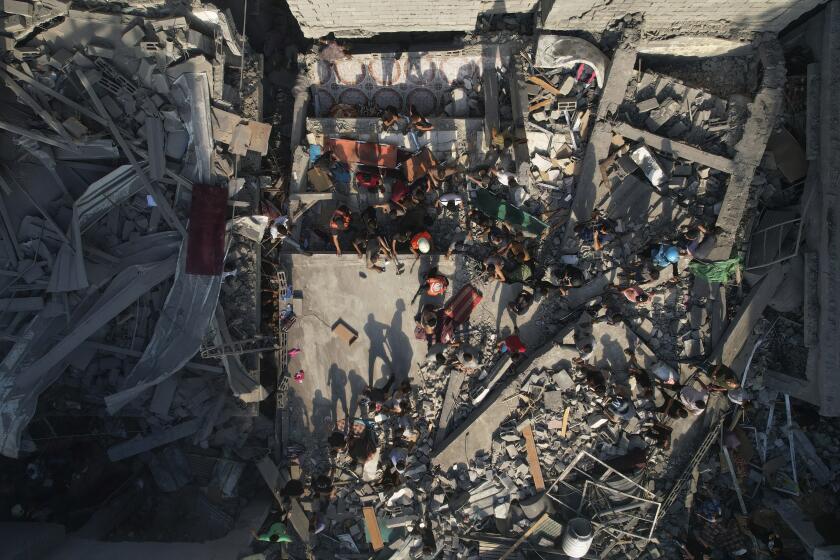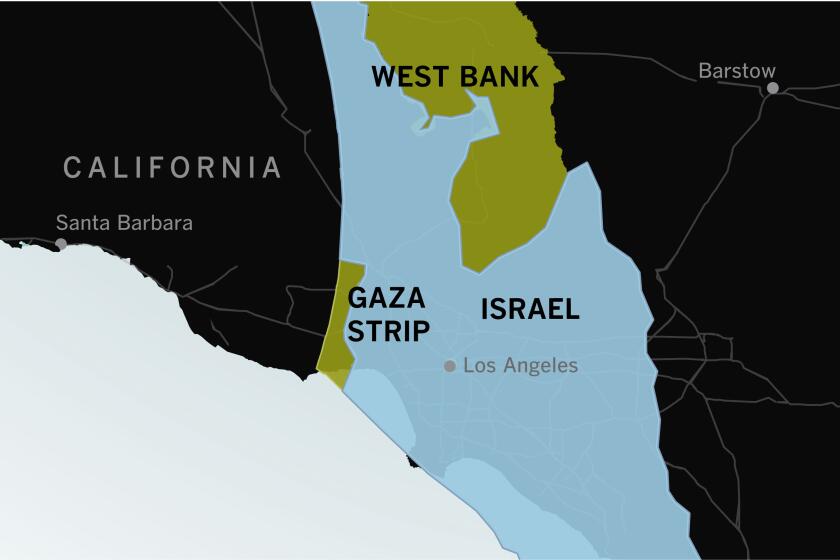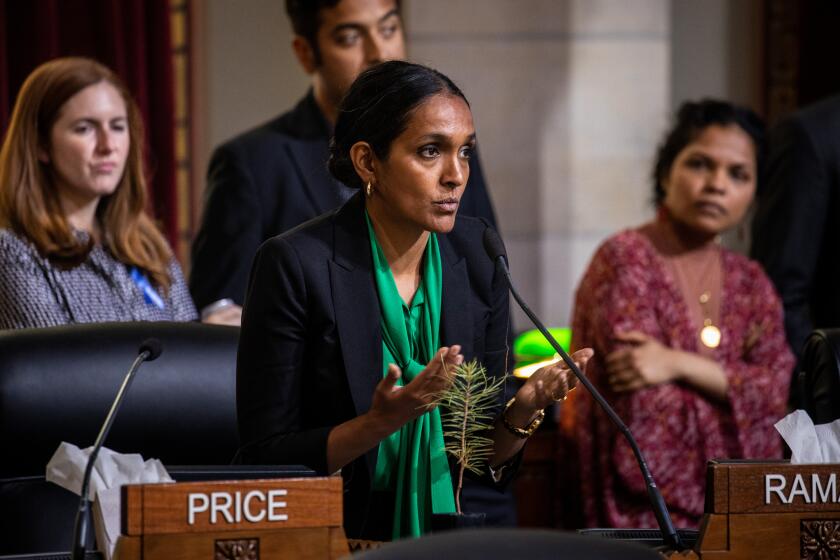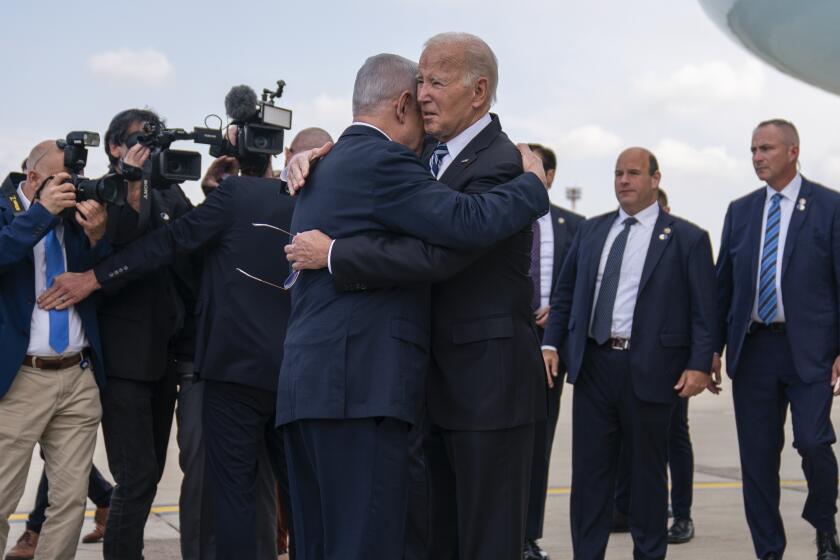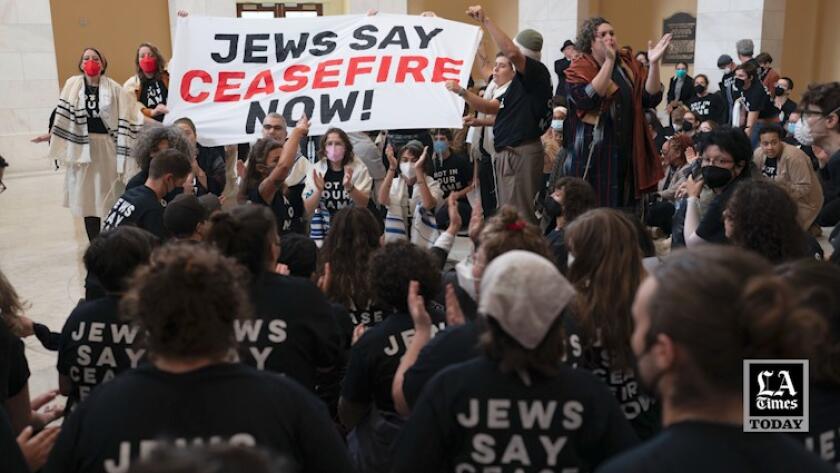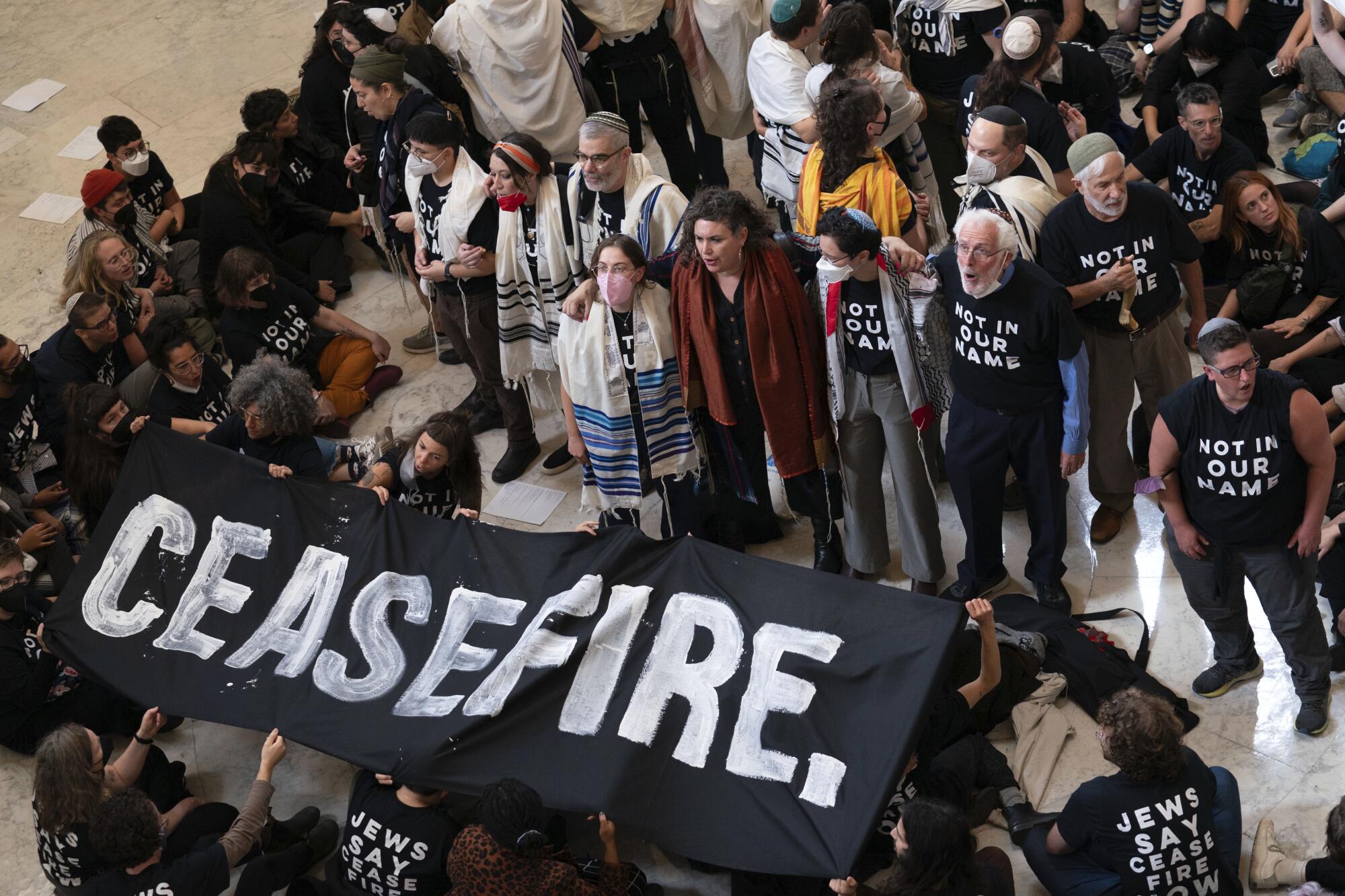
- Share via
Like many American Jews, Jonah Goldman sides politically with the left, including its push for the rights of Palestinians.
During college, he was active in J Street, the liberal Jewish advocacy group that opposes the Israeli occupation of Palestinian territories and lobbies for a two-state solution.
But in the aftermath of Hamas’ gruesome raid on Israel this month, Goldman has never felt so isolated from people he long considered his allies.
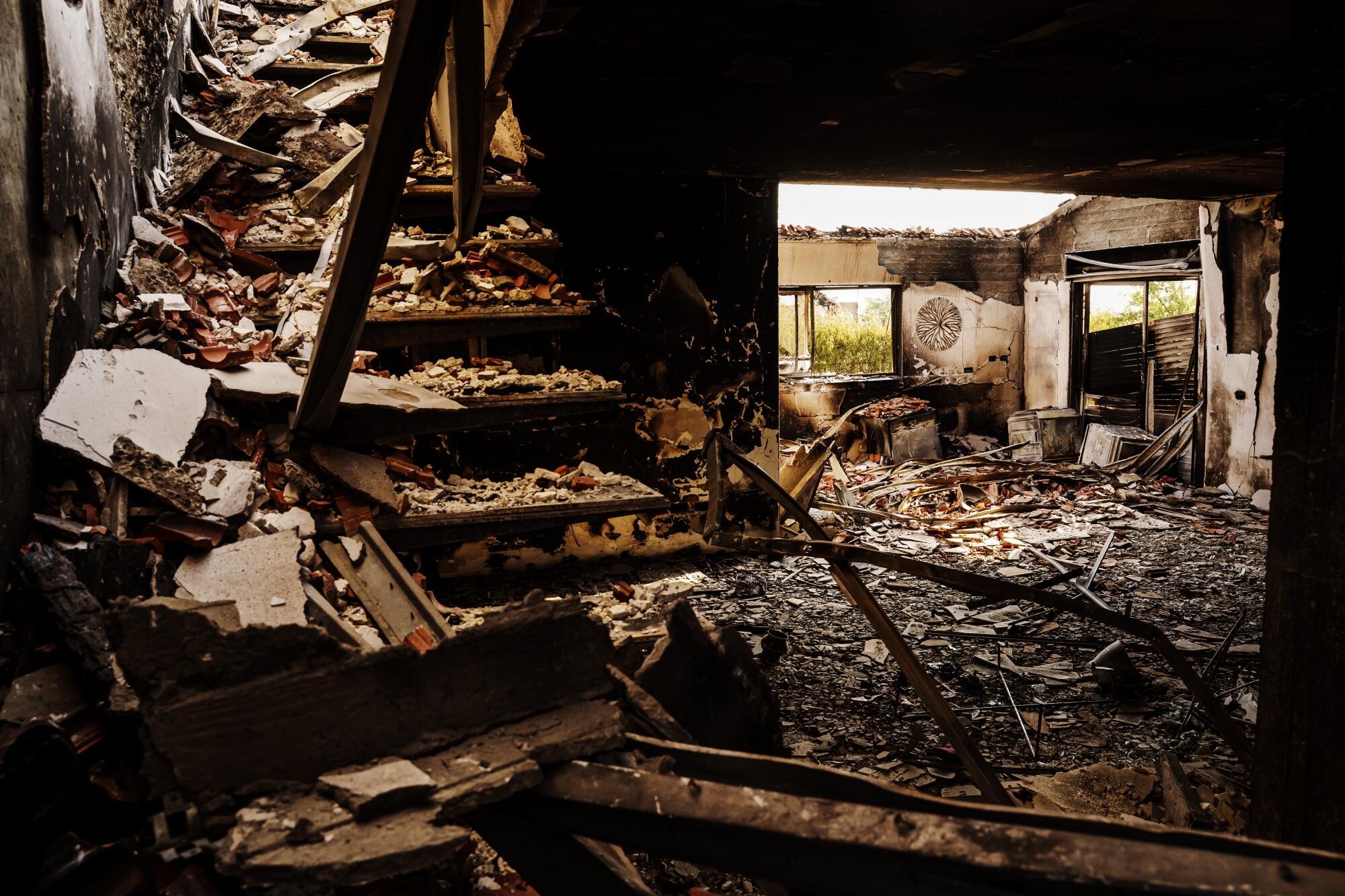
He was shocked by how quickly friends mobilized for the Palestinian cause while failing to condemn the attack. The militants killed more than 1,400 people, most of them civilians — slaughtering families, including children — and taking about 200 more hostage.
Palestinian Americans with Gaza connections struggle with feelings of helplessness over violence after Hamas’ attack and Israel’s retaliation.
Good people he never considered antisemitic suddenly seemed “supportive of Jewish genocide,” he said.
On social media and college campuses as well as at pro-Palestinian rallies — the sort of protests Goldman once would have joined — the assault has been portrayed as a form of resistance. He wondered why there was so little mourning for dead Jews.
“The left in America has really let us down,” said Goldman, 31, who lives in the Washington area and considers himself a Democrat and a socialist.
His political identity crisis is shared by numerous Jewish activists, scholars and rabbis who have long seen Israel as an oppressor of Palestinians and want a halt to its retaliatory bombardment of the Gaza Strip. The Health Ministry, which is run by Hamas, said Israel has killed more than 4,300 people, including more than 1,400 children. Israel maintains that it targets militants.
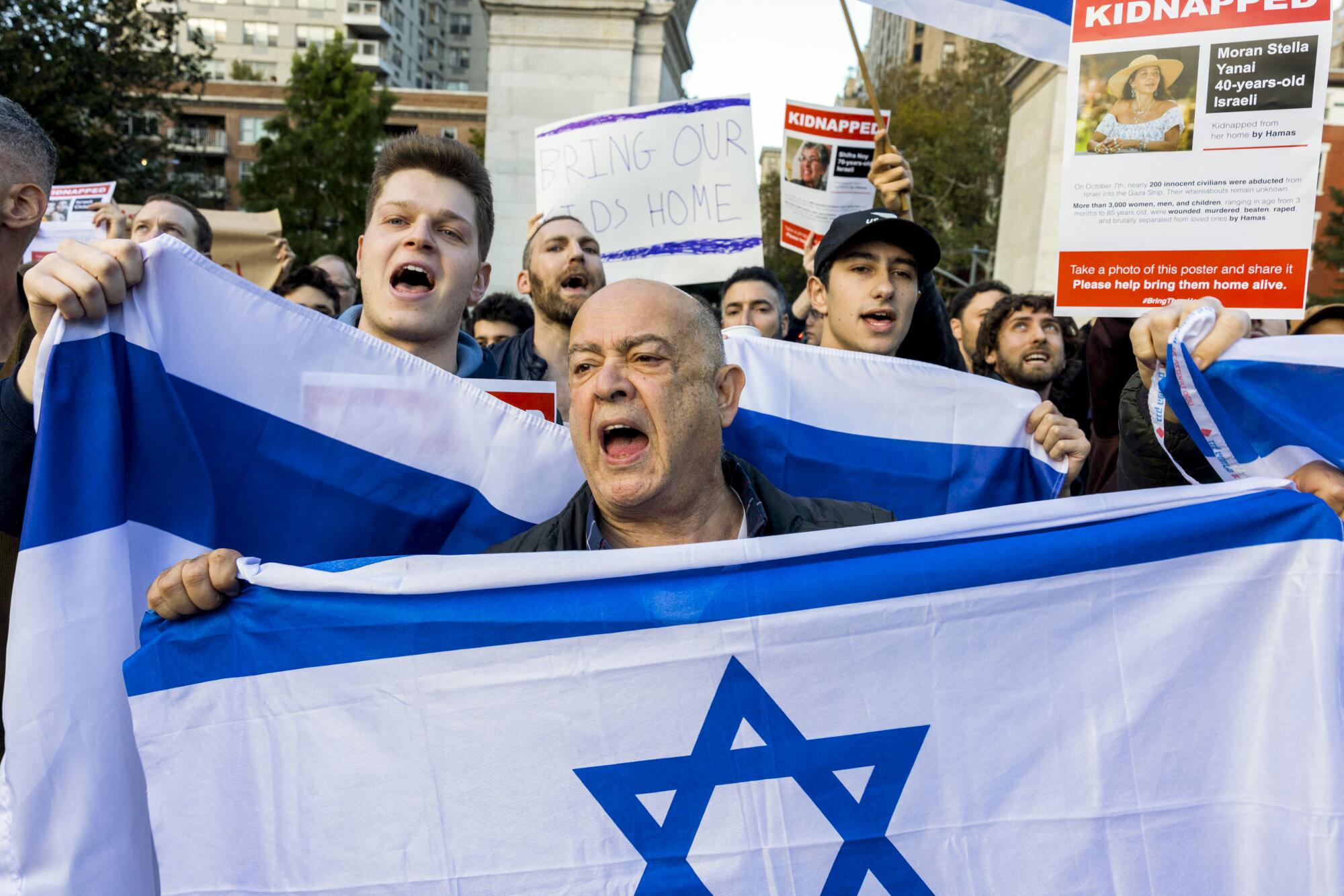
“I have long been of the view that the occupation is terrible, that Palestinian lives matter,” said Shira Klein, a 41-year-old Israeli American history professor at Chapman University in Orange County who served in Gaza for the Israeli military before it pulled out of the territory in 2005.
“You see people at pro-Palestinian rallies say ‘resistance is justified if Palestine is occupied,’” she said. “On most days, I agree with that. But when there’s a massacre of children and families, I do not.”
Maps show that Israel and the Gaza Strip would cover only fractions of Southern California and the Los Angeles area, respectively.
She decried a similar lack of nuanced thinking by those who believe that the Hamas attack justifies unrestrained retribution by Israel.
“It has become so black-and-white,” she said. “On the pro-Israeli side, it is all Israeli flags and dehumanization of Palestinians, that ‘we stand with Israel forever’ kind of mentality.”
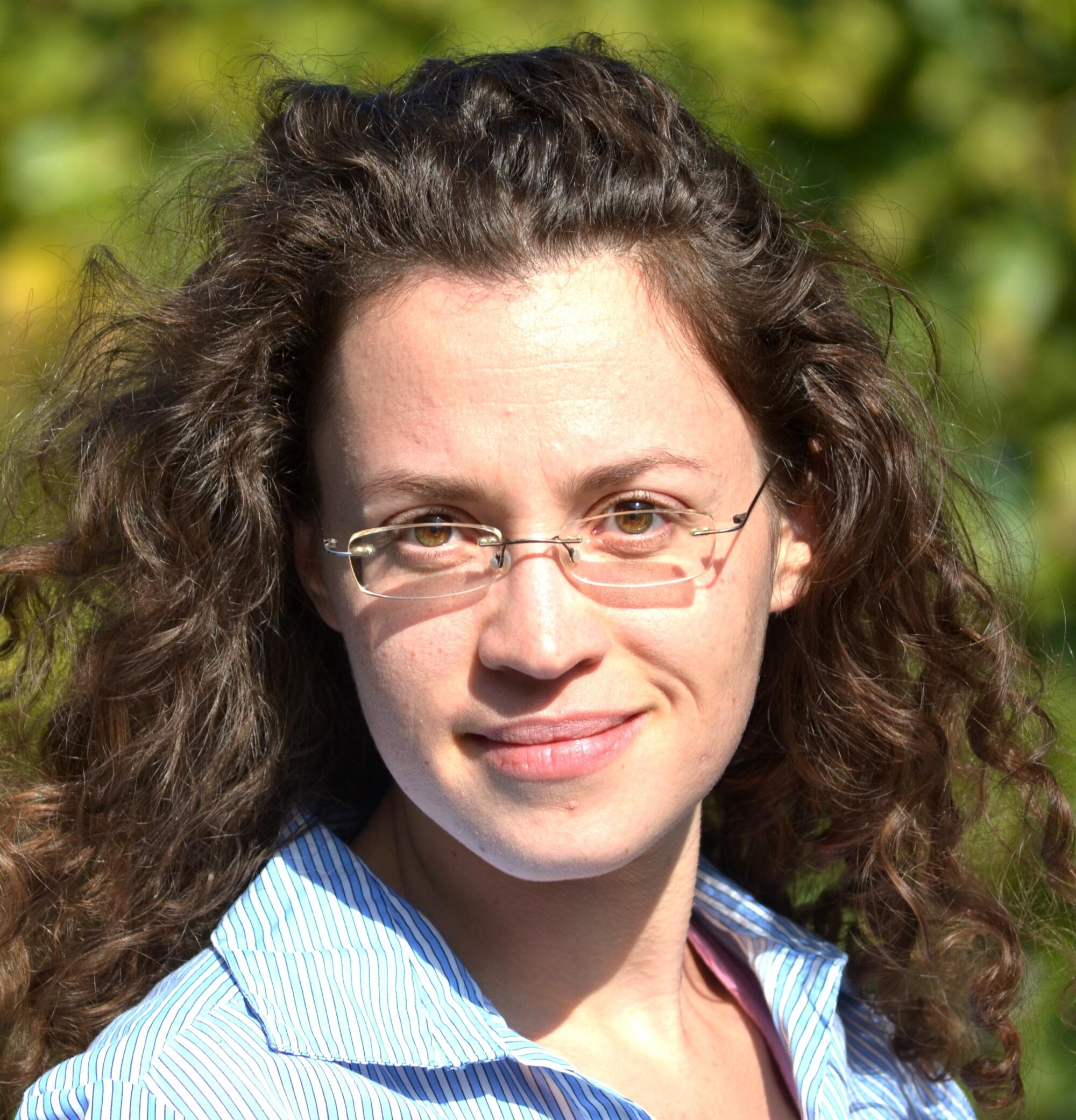
Klein helped organize an open letter signed by more than 900 Jews, nearly all them university scholars, condemning Hamas militants as “terrorists” — but notably not the organization, despite its designation as such by the U.S. government and European Union — and calling for a cease-fire while maintaining that Israel “has every right to defend itself.”
The vast majority of the professors have tenure, she said, explaining that those without it feared signing would lead to repercussions from students and administrators.
When it comes to the war, those who signed are in largely in sync with the mainstream left represented by the Democratic Party. Even the more leftist members of Congress condemned the attack by Hamas, whose founding charter called for the killing of Jews.
But in other quarters of the far left, significant airtime has been given to the view that Israel is a colonizing force and therefore violence against it is justified.
These activists deny that they are antisemitic and say the fact that most Israelis are Jews is immaterial. Some have adopted the Hamas position that all Israelis are legitimate targets by virtue of being on land where Palestinians lived before Israeli statehood in 1948.
“What did y’all think decolonizing meant? vibes? papers? essays?” one freelance writer said in a tweet that garnered 100,000 “likes” and 23,000 retweets before the account was locked.
A day after the attack, 35 student groups at Harvard released a statement saying that they “hold the Israeli regime entirely responsible for all unfolding violence.” Some groups disavowed it after a major law firm and a hedge fund vowed to not hire students associated with the groups and conservative activists broadcast their names.
The Democratic Socialists of America posted similar language on Instagram, saying the Hamas attack “was not unprovoked,” while also condemning the “killing of all civilians.”
Prosecutor Ethan Weaver, running against Councilmember Nithya Raman, has criticized his rival over statements by her endorser, L.A.’s Democratic Socialists.
And the paraglider — used by some Hamas militants to cross from Gaza into Israel — has become a prominent symbol of solidarity with Palestinians. The president of Cal State Long Beach condemned a student group for an Instagram post of a paraglider flying over people holding “Resistance is our right” signs.
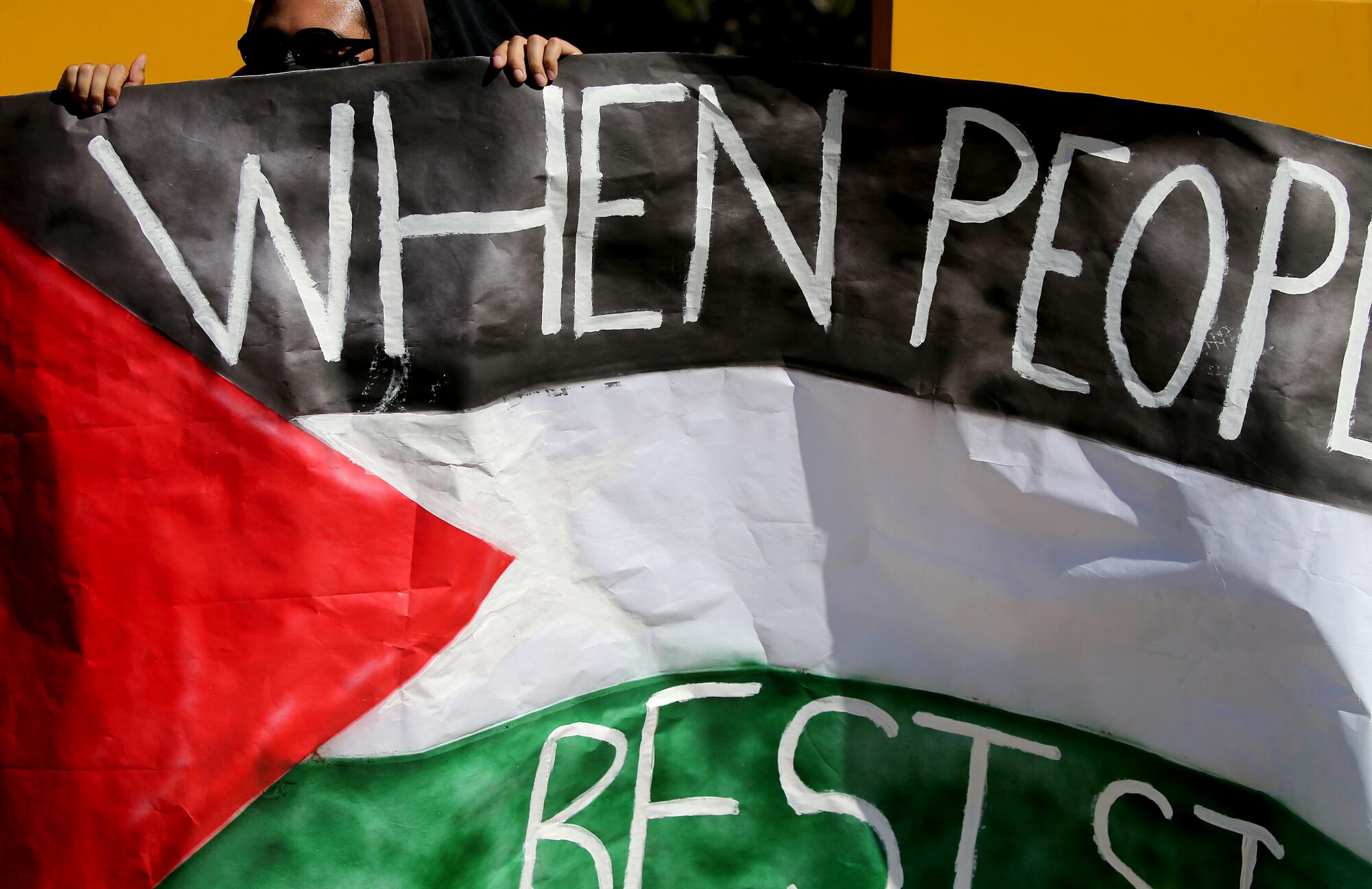
Such displays have been especially disconcerting for many American Jews given their own deep involvement in the quest for social justice. Jews were key allies of the civil rights movement of the 1960s, and many joined the demonstrations for racial justice in the summer of 2020 after Minneapolis police murdered George Floyd.
Jews have also been among the biggest targets for hate crimes in America, most prominently the 2018 massacre of 11 people at the Tree of Life synagogue in Pittsburgh. Antisemitic crimes were second only to anti-Black ones in 2022, a pattern frequently seen in Federal Bureau of Investigation data going back 31 years.
Anti-Jewish incidents hit a record high in U.S. and California in 2022, the Anti-Defamation League says. Some harassers referenced Ye’s antisemitic remarks.
But as a minority group that is by and large white, American Jews — who number 7.6 million, or 2.3% of the U.S. population — have also struggled to find their place in the new hierarchy of identity politics, where racial categories have become shorthand for the oppressed and the oppressor.
The most contentious issue is the state of Israel, which was created as a safe haven for Jews after the Holocaust. Its right to exist is sacrosanct for many Jews, who see it as an ancestral homeland where Jewish people have lived for millenniums. As memories of World War II fade and sympathy for the plight of millions of displaced Palestinians has grown as a political cause, support for Israel has waned among younger generations in the United States.
When the Pew Research Center asked Jewish American adults whether they had an emotional attachment to Israel, 48% of those younger than 30 said yes in 2020 — down from 60% in 2013. In both years, those figures were significantly higher for people 50 and older.
Younger Jews are more likely to consider themselves anti-Zionist — against the creation of Israel or at least the way statehood was granted — a stance that the Anti-Defamation League, a prominent Jewish civil rights organization, considers antisemitic.
“Antisemitism is very real, but I feel a lot of solidarity among Jews who are anti-Zionist like me,” said Benjamin Toby, 22, a social worker who recently graduated from New York University and calls himself a “socialist, progressive leftist.”
The Hamas attack did not change his position. He even posted a screenshot of the viral decolonization tweet to his Instagram account.
“The Palestinian people have exhausted all other options except for violence,” Toby said. “I do not want to support Hamas because I do not know enough about it, but I do support violence as an answer to settler colonialism against oppressed people.”
Toby attended a pro-Palestinian rally on Saturday in Bay Ridge, a Brooklyn neighborhood nicknamed “Little Palestine.” He described its themes as “ending the occupation, stopping bombing and ending the colonization of Palestine.”
President Biden pledged solidarity with Israel and suggested that Palestinian militants were responsible for a massive blast at a Gaza hospital.
“I think there’s a lot of fearmongering among Jews right now,” he said. “Antisemitism is less of a concern to me and other Jews than Islamophobia and anti-Palestinian sentiment.”
That view was common among the hundreds of Jews who attended a sit-in Wednesday at a congressional office building near the U.S. Capitol in support of a cease-fire. It was organized by the leftist group Jewish Voice for Peace, which put out a statement after the Hamas attack saying: “Israeli apartheid and occupation — and United States complicity in that oppression — are the source of all this violence.”
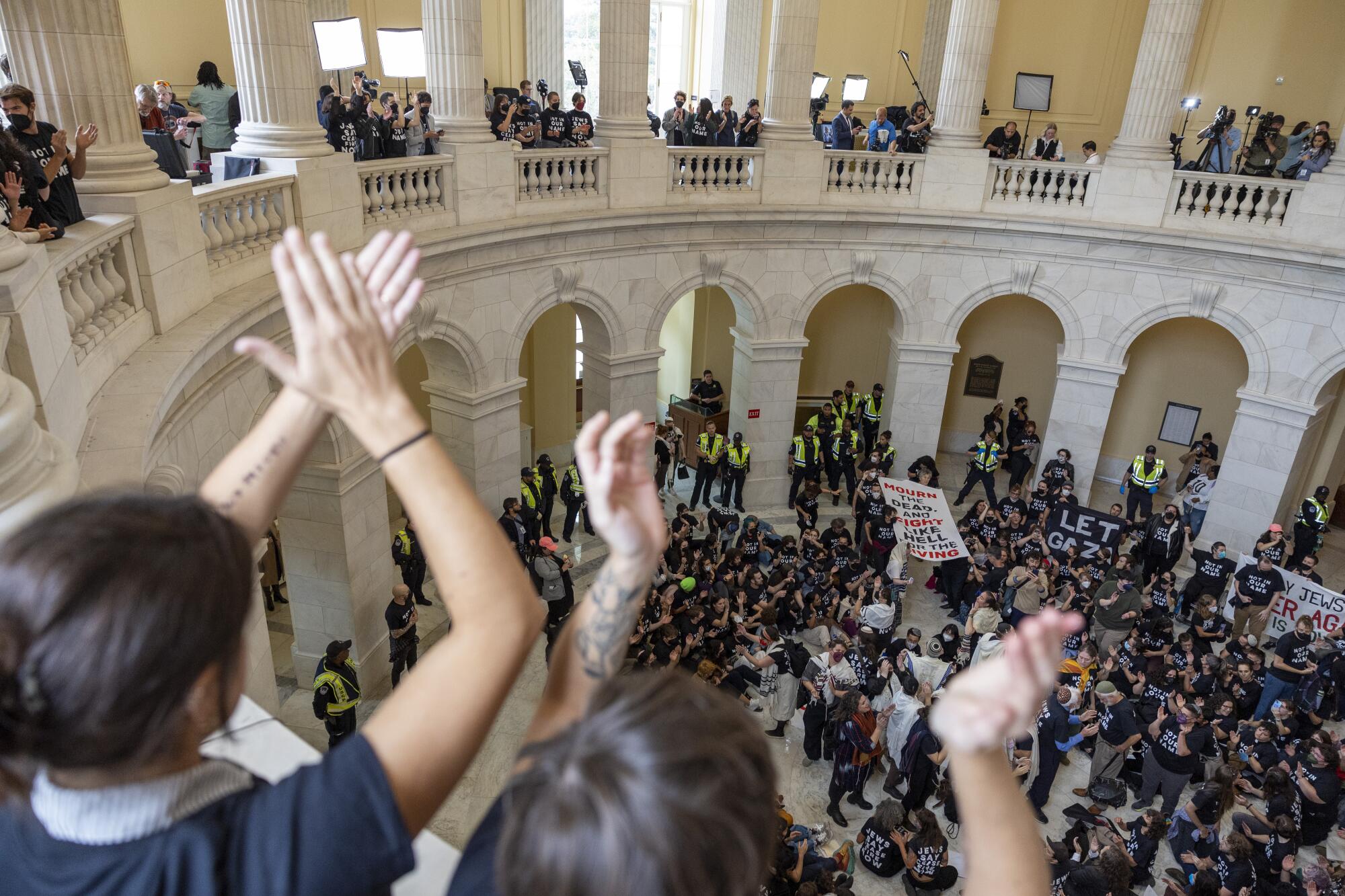
“The pushback that American Jews might feel for speaking up for Palestinians is a fraction of what Palestinians whose families are being bombed right now feel,” said Eliza Klein, a 26-year-old organizer for the group who was arrested at the demonstration. “As Jews, we need to speak up when genocide is carried out, the way we wish people did when this was happening to our ancestors.”
But for many other Jews who support Palestinian rights, it has been impossible to stomach the idea that Hamas’ victims were legitimate targets.
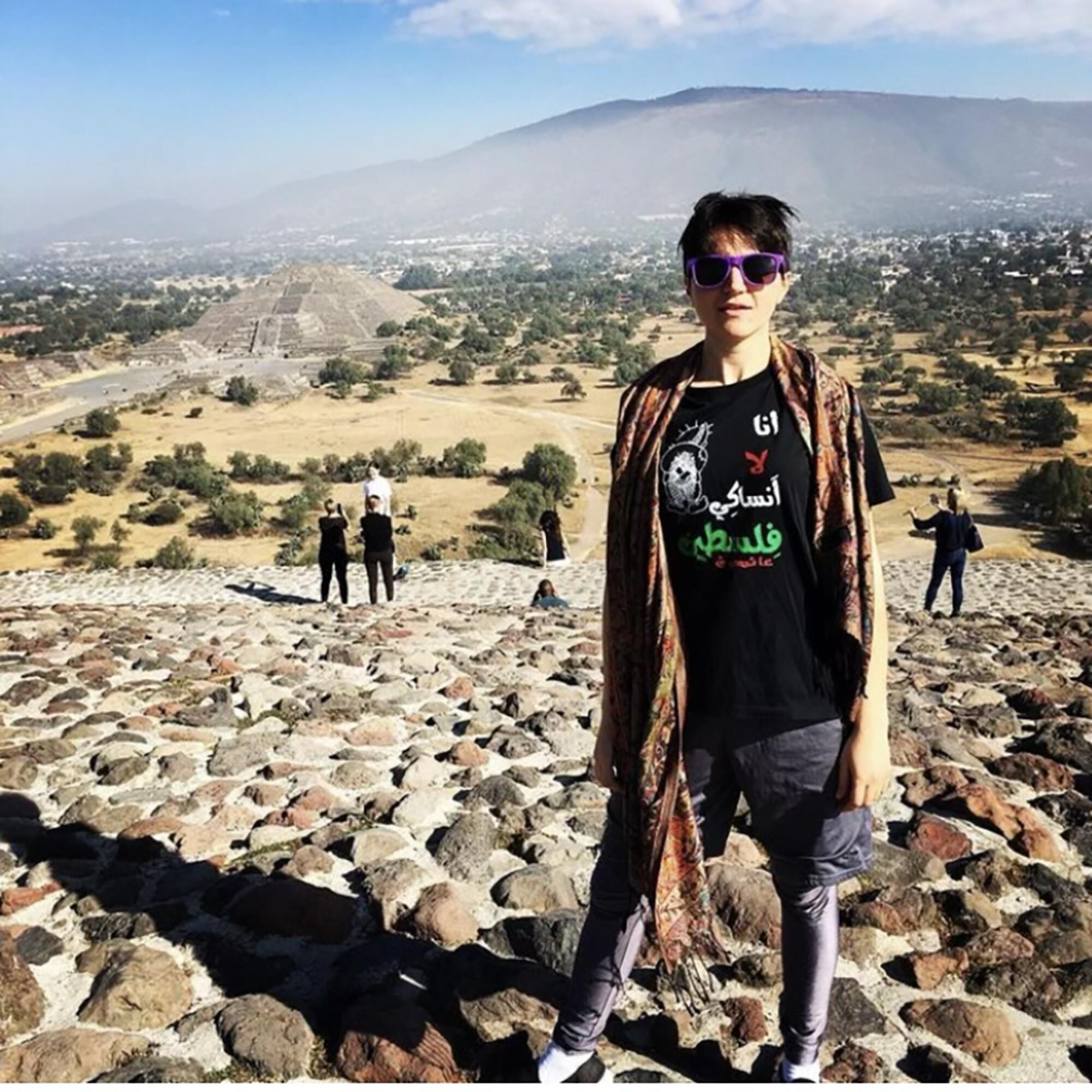
Jennie Kogan, a 32-year-old social worker in New York, said they were saddened to learn that people tore down posters that had been put up in New York, Philadelphia, Miami and other cities showing the faces of American Jews who had been taken hostage by Hamas.
“What is the point of that?” they said.
They have been a pro-Palestinian activist since 2014, a path that was inspired by their involvement with the Black Lives Matter movement and has included an educational exchange in Israel and the West Bank.
But Kogan has felt nervous at pro-Palestinian rallies since the Hamas attack. They have attended a vigil to mourn lives lost in Israel and in Gaza, a Jewish-led demonstration in support of a cease-fire and an interfaith march calling on legislators to support de-escalation — something they have been praying for.
“Even though I nearly completely agree with a lot of the pro-Palestinian perspectives at rallies, I’ve felt less comfortable going to them as an American Jew,” they said.
“I almost feel bad for saying I like being Jewish. In some progressive spaces, there is a level of condemnation for Jewish people who do not immediately say they are anti-Zionist or who have spent time in Israel.”
They believe that Israelis and Palestinians deserve to exist side-by-side with peace and equal rights and said they would support a “two-state solution if it achieved that.”
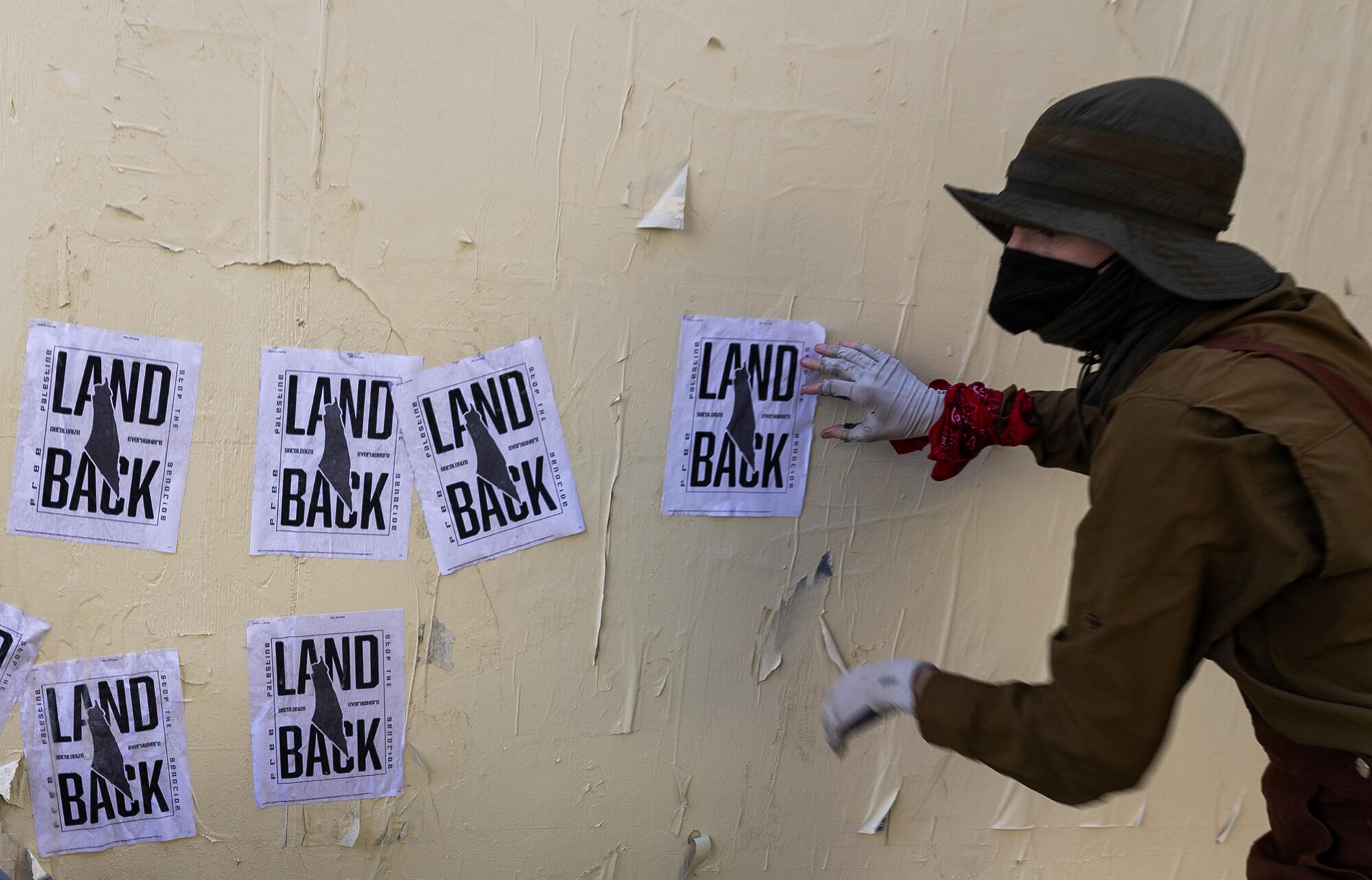
That desire is not uncommon among American Jews of all backgrounds. The 2020 Pew poll found that more than 6 in 10 U.S. Jews said they believed “a way can be found for Israel and an independent Palestinian state to coexist peacefully.”
It’s a position long held by Karen Siegel, a Democrat who lives in Miami, but one she has now started to question.
“This Hamas terrorism was so bad and indiscriminate, killing completely innocent people, and the response in the U.S. among liberals has completely lacked nuance,” said Siegel, 33. “Is there ever a chance for peace? I don’t see Hamas or American protesters helping.”
“Sure, I have questions about the Israeli government, but I have more questions right now about people in my own country,” she said.
Amid the anger and grief, activists and rabbis on different sides of the debate have urged fellow Jews to maintain a moral compass.
Rabbi Sharon Brous, a progressive leader of the IKAR congregation in Los Angeles who is known for her public criticism of the Israeli government, summed up the views of many.
“The clear message from many in the world, especially from our world — those who claim to care the most about justice and human dignity — is that these Israeli victims somehow deserved this terrible fate,” she said during a recent sermon that was posted online and went viral.
Antisemitism is so “embedded” in society, she said, that “people cannot even see it.”
Speaking of the Hamas attack, she said it was impossible to hear of the deaths of more than 1,400 people without thinking of “our multi-generational Holocaust trauma.”
“Our human ask is that people give a damn when we die,” she said.
- Share via
Watch L.A. Times Today at 7 p.m. on Spectrum News 1 on Channel 1 or live stream on the Spectrum News App. Palos Verdes Peninsula and Orange County viewers can watch on Cox Systems on channel 99.
More to Read
Sign up for Essential California
The most important California stories and recommendations in your inbox every morning.
You may occasionally receive promotional content from the Los Angeles Times.

